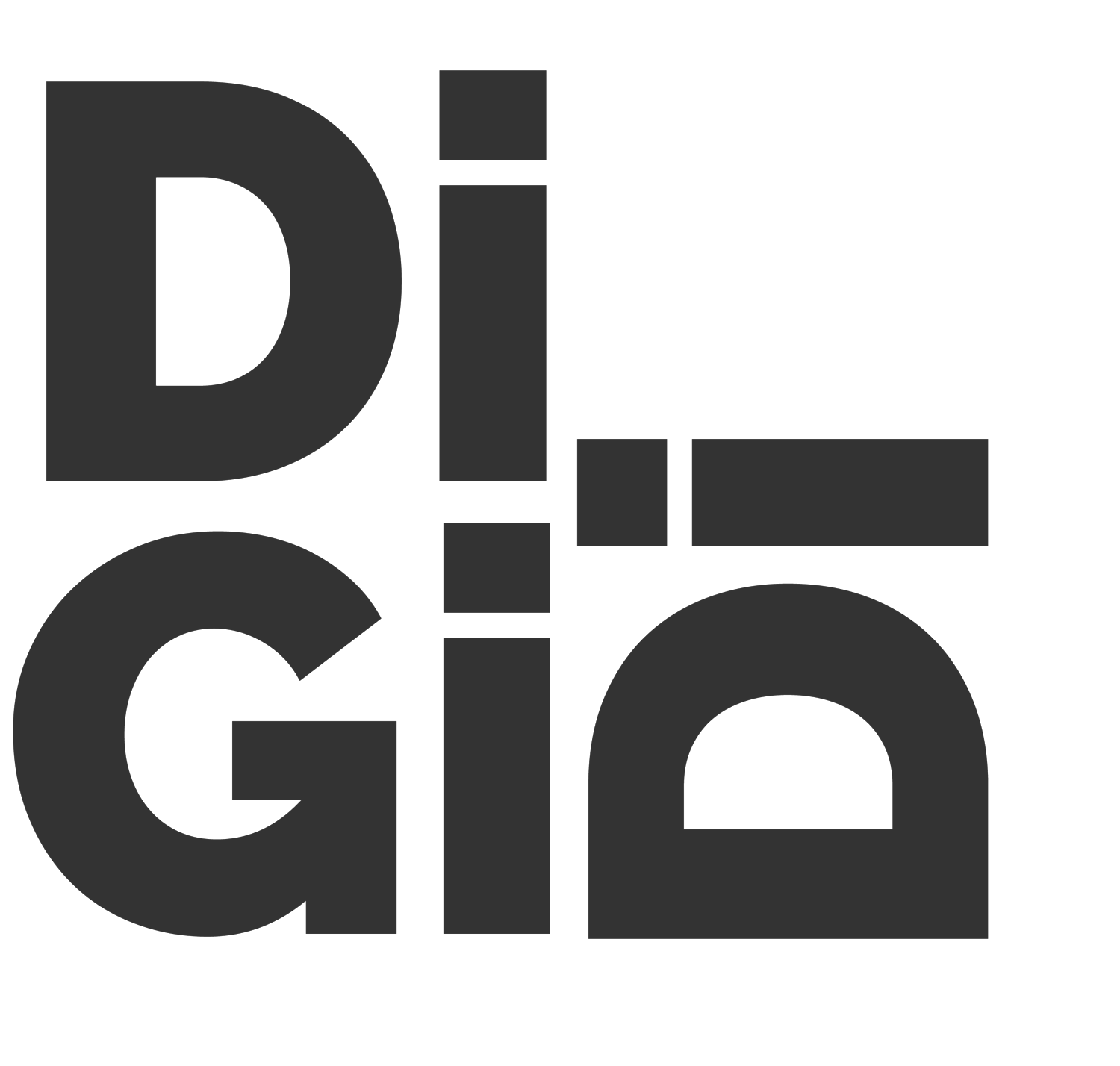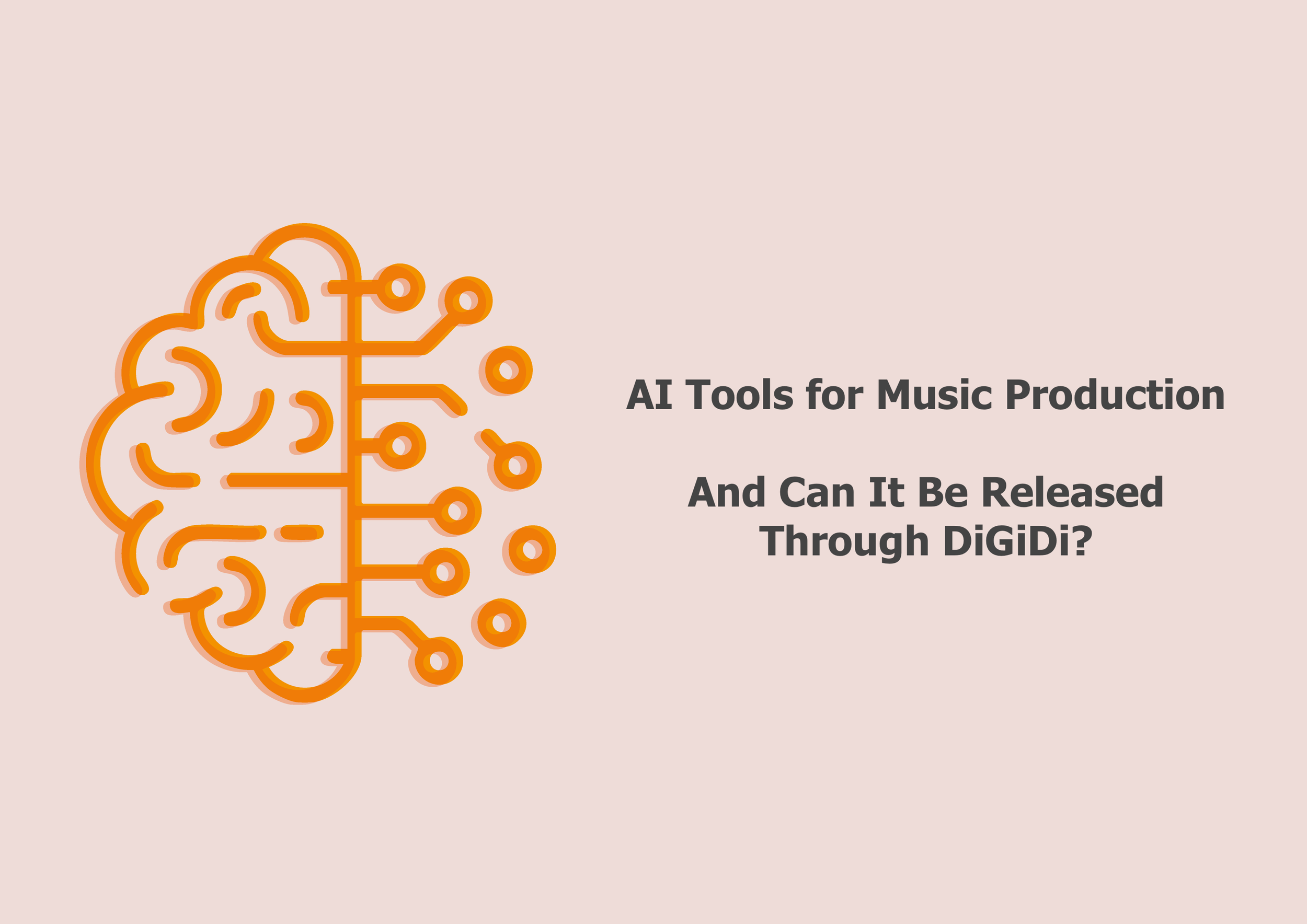AI Tools for Music Production – And Can It Be Released Through DiGiDi?
Use of AI Tools in Music Production
If you’ve used AI tools in your music production and wish to release it for streaming through DiGiDi or another distributor, it will be classified as commercial use. This means that certain rules, laws, and guidelines come into effect. Read below to get an overview of when it's OK — and when it's not OK — to release music created with AI involvement.
Can AI-generated music be released through DiGiDi?
There is still significant legal uncertainty surrounding ownership and copyright, especially since many AI models have been trained on existing music without consent. Therefore, DiGiDi follows a precautionary principle: If you cannot document that you have full rights to the work you want to release, DiGiDi cannot distribute it to commercial platforms.
DiGiDi thus reserves the right to reject releases suspected to contain AI-generated music. However, some AI tools are allowed—see the overview below of which general AI tools may or may not be used if you want to release your music through DiGiDi.
NOT ALLOWED: AI-generated music or vocals (e.g., Suno, Udio, AIVA)
We begin with what is not allowed. Suno, Udio, AIVA, and similar programs generate entire songs with minimal user input, which raises several issues:
Ownership of the final track is unclear. Often, you do not own the rights to the generated material.
Many services prohibit commercial use in their terms unless you pay for separate licenses.
These systems are trained on large amounts of existing music, and it’s not always transparent whether the output may resemble or copy existing works.
ALLOWED: AI tools for lyrics and text (e.g., ChatGPT)
Using AI to generate or brainstorm lyrics is allowed. ChatGPT and similar systems can assist with suggestions, improvements, and wording, but the final content is adapted and owned by you. Clear guidelines from the provider state that users may commercially use the output.
ChatGPT is "verified" and avoids using lyrical phrasing that already exists in its training data. However, we cannot necessarily vouch for other AI-based lyric generators.
ALLOWED: AI for mixing and mastering
Tools like LANDR, eMastered, and CloudBounce offer automated mixing and mastering. These function as technical tools working on music you have created yourself. Ownership remains with you, and there are no copyright concerns. Therefore, these tools are approved.
ALLOWED: AI assistants in music software
Software like Ableton Live and Logic Pro X offer AI features that suggest chords, tempo changes, or musical ideas. These assistants act as inspiration — not full replacements for creative work. This means you still own and have created your music, making it approved for release through DiGiDi.
ALLOWED: AI-generated cover art and images
Tools that generate images and illustrations with AI (e.g., Craiyon, Leonardo.ai) may be used for cover art. However, it is important that you do not base your artwork on existing images, photographs, brands, or similar content.
How can we tell if AI was used in the music creation process?
In most cases, it's clear to hear when music is auto-generated by AI systems. However, as AI-generated music becomes better at imitating human-made music, it can sometimes be difficult to identify if AI was involved.
If your music is rejected
If your music is rejected due to suspected AI use, and you can prove that AI was not used in its creation, you can send the UPC and documentation to support@digidi.dk, and we will initiate a review.
About copyright and commercial use in connection with AI
When working with music and AI, the same basic principles for copyright and commercial use apply as with traditional music production.
To commercially release music, you must hold the necessary rights to all content in the work — music, lyrics, and possibly artwork.
If AI has created the music, and the model was trained on copyrighted material, the final work may infringe on others’ rights. This applies even if you did not intentionally copy anything. Many AI platforms also restrict the commercial use of their output via license terms, and you as the artist are ultimately responsible for ensuring proper use.
Why can’t I release AI music through DiGiDi? Is AI music illegal?
Creating AI music is not illegal, but restrictions apply when using the output commercially — such as releasing it on streaming platforms.
Because there is still great legal uncertainty about ownership and copyright — especially since many AI models are trained on existing music without consent — DiGiDi applies a precautionary principle:
If you cannot document that you have full rights to the work you want to release, DiGiDi cannot distribute it to commercial platforms.
You can follow developments in this area through international copyright authorities, such as the U.S. Copyright Office, which often sets standards that influence European practices as well.




